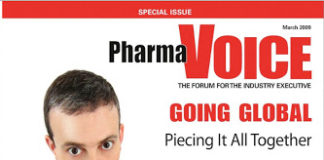
My fellow blogger Peter Rost over at Question Authority continues to milk an Astrazeneca internal newsletter for stories. First it was the Zubillaga Affair, then the Missy Moran’s MUMS Miasma, followed by The Pink Cupcake Caper. Now it’s the Doctor Freedland Fee Fest! (Sorry, doc, your name will forever be linked to this issue in Google searches.)
“Medical Bags of Money”
The Astrazeneca newsletter reports that Dr. Stephen Freedland — faculty member of the Duke University School of Medicine — was number one among the “Top 3” Casodex (a prostate cancer drug) speakers in 2006, speaking 68 times on behalf of Astrazeneca. Number 2 spoke only 21 time! Freedland is set to best that record in 2007, having “moderated 21 programs” at the time of publication of the newsletter.
Rost calculates that at “top dollar” (about $3,000 per engagement, not counting travel expenses), Dr. Freedland earned as much as $270,000 during the ’06-’07 time period in question, or at least $204,000 per year!
Rost says he’s “not implying there’s anything wrong with any of this, that’s something others are more qualified to do . . . I’m just showing you how the system works.”
But here’s what I think is wrong with this.
There is No Registry Reporting Dollars Paid to Docs
The industry is reacting to pressure from Congressional committees regarding CME funding by attempting to be “more transparent” and publishing registries of educational grants (see, for example, “Lilly Discloses Funding” and “More firms say they will divulge CME grants“).
However, if you look at Lilly’s grant registry, you ONLY see grants made to organizations that REQUESTED grants; you won’t find any doctors’ names on the list. Presumably, Lilly, like every other pharmaceutical company, “utilizes” speakers like Dr. Freedland to “moderate” educational programs for physicians. Why aren’t these docs on the list?
So, Astrazeneca may eventually report a modest grant of $25,000 to Duke University School of Medicine (I’m just conjecturing here) for a specific educational program it hosts, but it probably won’t list the $204,000 paid to Dr. Freedland to “moderate” other “educational” programs.
NOTE: The Accreditation Council for Continuing Medical Education (ACCME), which governs accredited CME providers like Duke University School of Medicine, in its Standards for Commercial Support, prohibits pharma paid consultants like Dr. Freedland from speaking at or moderating CME activities. It only allows honoraria to be paid out of the CME provider’s grant budget, not from the pharma company directly.
Doctor Freedland may also receive “honoraria” from grant budgets OVER AND ABOVE the $204,000 he received directly from Astrazeneca.
The point is, some doctors are receiving a LOT of dollars from pharmaceutical companies as “consultants” to speak on their behalf at “educational” events hosted by these companies (apart from any honoraria they may receive from ACCME-accredited educational programs). These dollars, which may dwarf most grants, are NEVER likely to show up in the type of grant registries now being made public by some pharmaceutical companies.
Do we need more transparency regarding physician “consultant” fees paid by pharma companies? Let me know by participating in the following poll:
| Should Pharma Companies Report Physician Consultant Fees? | |
| Yes, we have a right to know | |
| No, that’s confidential business information | |
| No, that’s up to each physician to reveal | |
| Not sure | |
Speaking of drug industry influence on CME, you should read what my friend Jane Chin has to say on the subject:
“Shedding the light on potential industry influences on CME content and the role of medical education companies are helpful to ensure that appropriate controls are in place for fair balanced, bona fide CME programs. Therefore, asking questions about undue influences is an important activity on Senate Finance Committee’s part. On the other hand, I do not believe in administrating ethics (it does not work that way). Ethics is about personal accountability from each individual who makes or implements decisions around CME” (see “Industry Funding of CME: The Next Chapter“).









![6 Digital Tools at the Center of Healthcare Digitalization [INFOGRAPHIC]](http://ec2-54-175-84-28.compute-1.amazonaws.com/pharma-mkting.com/wp-content/uploads/2021/04/6DigitalTools_600px-100x70.jpg)




